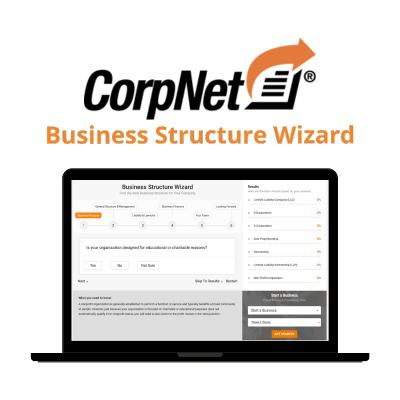Starting a small business is exciting, but that alone is not enough. Achieving your goals will often require a long list of needs with money being at the top of that list. While most startups are self-funded, many entrepreneurs want and need a small business loan.
Obtaining a startup loan makes it easier to turn your business ideas into viable companies. They provide a solid financial foundation to build a business and make it easier to weather the initial challenges and uncertainties of a startup.
Startup loans provide new small businesses with:
- Cash infusion – Having more available funds at startup enables entrepreneurs to invest in essential resources and infrastructure from day one, giving them a head start to grow.
- Operational Stability – With adequate funding, small businesses can maintain their operations without disruptions, which is vital for building a solid customer base and reputation.
- Growth Potential – Access to capital allows businesses to seize growth opportunities, expand their product or service offerings, and reach a broader market sooner.
- Crisis Preparedness – Having the financial reserves startup loans provide can help businesses navigate unexpected challenges, such as economic downturns or unforeseen expenses.
Challenges of Getting a Startup Loan
Truthfully, startup loans are not easy to come by, but they’re not impossible to get either. The first place most new business owners turn to for startup funds is a traditional bank. But this is often a challenging ask. Typically, before banks lend money to small businesses, they examine several factors.
How Long You’ve Been in Business
- This is perhaps the biggest hurdle for startups.
- Most traditional banks prefer to lend to companies that have been in business for five or more years.
Excellent Credit Scores
- Banks and credit unions – A minimum credit score of 680. To get the best terms, you’ll need a score of 740 or higher.
- SBA lenders – A score in the mid-600s is required for financing.
- Online lenders (fintechs) – If your startup is otherwise financially strong, fintechs look for minimum scores in the mid-500s. But your interest rates are typically much higher.
- Term loans and lines of credit – Bank and credit unions require a credit score of 670 and online lenders require a credit score of 580.
- Commercial real estate loans – These typically require a minimum credit score of 680.
- Equipment loans – These typically require a minimum credit score of 550 (the equipment serves as collateral of sorts).
Collateral
- Collateral is an asset you (the borrower) pledge to the lender as security for the loan.
- If you default on the loan, the lender can seize and sell the collateral to recoup its losses.
- Common types of collateral for small business loans include real estate, equipment, inventory, accounts receivable, cash, and investments.
- Lenders typically require borrowers to put up collateral equal to or greater than the loan amount.
- Collateral can make it easier to qualify for a loan and get a lower interest rate.
- If you’re considering offering collateral:
- Choose collateral that is valuable and has a substantial resale value.
- Make sure that the collateral is easy to liquidate.
- Avoid offering collateral that is essential to your business operations.
- Consider using personal assets as collateral only as a last resort.
Personal Guarantees
- Giving a personal guarantee to a lender can be risky.
- Pledging your personal assets if you default on the loan means the lender can seize those assets, like your home, car, and savings, to repay the loan.
Types of Startup Loans Available
Several financing options cater specifically to startup businesses.
SBA Loans
SBA loans are backed by the SBA and not given directly to businesses. Since these loans are partially guaranteed, they tend to have more favorable terms than traditional loans, including lower interest rates and longer repayment terms.
The SBA sets the guidelines and qualifications for SBA-backed loans. Use the SBA Lender Match tool to find an SBA-approved lender in your area.
Here are the different SBA loans available:
- SBA 7(a) Loan – the 7(a) loan can be used for short & long-term working capital, to refinance current business debt & to purchase furniture, fixtures & supplies. The maximum loan amount for a 7(a) loan is $5 million.
- SBA Express Loan – SBA Express Loans are part of the 7(a) SBA loan program. Applicants get answers within 36 hours. The maximum loan amount is $500,000.
- Community Advantage Loan – For a limited time, the SBA is offering a pilot loan—the Community Advantage (CA) loan with a maximum loan amount of $350,000. CA loans are available from community-based, mission-focused lenders to meet the needs of small businesses in underserved markets. The pilot program is set to expire on September 30, 2024.
- SBA 504 Loan – The 504 loans are long-term, fixed-rate loans of up to $5 million for “major fixed assets that promote business growth and job creation.” Loans are available through the SBA’s community-based partners-Certified Development Companies (CDCs).
- SBA Microloan – Microloans up to $50,000 provide startup and expansion funding. Intermediary lenders are nonprofit community-based organizations, and each lender sets its own lending and credit conditions.
Traditional Bank Loans
Traditional banks offer loans to startups based on the entrepreneur’s creditworthiness, business plan, and collateral. These loans typically have competitive interest rates but may require a robust credit history.
Online Lenders
Online lenders provide a quicker and more accessible option for startup loans. They often have less stringent credit requirements and offer various loan products, such as term loans and lines of credit.
Microloans
Microloans are small, short-term loans provided by nonprofit organizations, community lenders, or online platforms. They are suitable for startups with modest financing needs.
Personal Loans
Some entrepreneurs use personal loans to fund their businesses, especially if they have good personal credit. However, this approach carries more personal financial risk.
Crowdfunding
Another way to raise startup funds is by crowdfunding. Instead of getting money from a single-lender model, crowdfunding collects money online from many people and exposes your new business to potential future customers.
Most people are familiar with popular crowdfunding sites like Kickstarter, GoFundMe, and Indiegogo. There are also crowdfunding platforms designed to serve specific groups of people, like IFundWomen and FundBlackFounders.
Here are some tips if you’re considering crowdfunding:
- Create a compelling campaign that is clear, concise, and persuasive. It should explain what your business is, why you need funding, and how you plan to use the money. You should also include a video or other multimedia content to help bring your campaign to life.
- Promote your campaign. Once you have created your campaign, you need to promote it to potential backers. You can do this through social media, email marketing, and paid advertising.
- Offer rewards. Many crowdfunding campaigns offer rewards to backers, such as early access to products or services, discounts, or exclusive merchandise. This helps incentivize people to support your campaign.
- Be transparent and communicative. Be clear about how you plan to use the money you raise. Keep your backers updated on your progress and be responsive to their questions. This will help to build trust and excitement for your campaign.
Crowdfunding can take time and lots of effort, so be patient. Don’t get discouraged if you don’t reach your goal right away. Keep promoting your campaign and reaching out to potential backers.
Before You Apply for a Small Business Loan
Securing a startup loan requires strategic planning and preparation.
Here are some tips to improve your chances of obtaining the financing you need:
- Build a Solid Business Plan – Craft a well-documented business plan demonstrating your understanding of the market, competition, and financial projections.
- Maintain Good Personal Credit – Maintain a healthy personal credit score by paying bills on time and managing your finances responsibly.
- Explore Multiple Lenders – Don’t limit your options. Research and compare loan terms from various lenders, including traditional banks, online lenders, and nonprofit organizations.
- Establish a Business Credit Profile – Most banks expect you to get an Employee Identification Number (EIN) before opening a business bank account. You can apply for an EIN on your own or let CorpNet help you. And it’s imperative to keep your business and personal funds separate.
- Seek Professional Guidance – Consult with financial advisors, accountants, business consultants, or organizations like SCORE that can provide guidance about loan options, financial planning, and loan application preparation.
While it can be challenging to get a startup loan, understanding the types of loans available and knowing the process makes it possible for new entrepreneurs to obtain startup funding.

Choosing a business structure can be a tough decision for the new business owner. CorpNet wants to make the process easier.
This free, online tool helps small business owners navigate the process of picking the right business structure for their new business.





